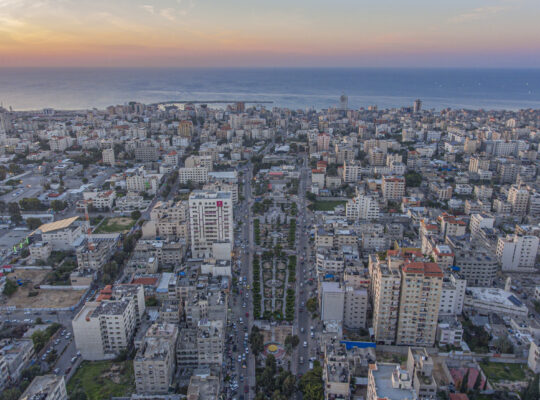[ad_1]
Unlock the Editor’s Digest for free
Roula Khalaf, Editor of the FT, selects her favourite stories in this weekly newsletter.
The main UN agency bringing humanitarian aid to Gaza has said it will run out of fuel in less than a day, threatening its ability to help roughly 1mn people displaced by the war in the besieged enclave.
The UN’s Palestinian relief agency said it needed fuel to run its fleet of vehicles, including trucks picking up aid from the limited number of convoys permitted to enter the strip via the Egyptian border. UN vehicles are also indispensable for distributing bread and flour to people sheltering from Israel’s heavy bombardment of the coastal territory.
“We will most likely run out of fuel that is available to UNRWA’s humanitarian operations between tonight and tomorrow,” Tamara Alrifai, a spokesperson for UNRWA, told the Financial Times. “For us this means we are going to have to make very difficult choices as of now on what we prioritise.”
Israeli officials have accused Hamas of hoarding fuel in depots in Gaza.
UN officials have warned of a humanitarian catastrophe after Israel closed the border with Gaza, cut off supplies of electricity and partially of water, and began a campaign of intensive air strikes in retaliation for a deadly Hamas assault on southern Israel earlier this month.
Heavy Israeli bombardment of Gaza from land, sea and air has killed more than 6,500 people. The daily death toll has risen in recent days as Israel has stepped up its strikes. Palestinian health officials reported that a further 688 people had been killed in the enclave in the past 24 hours.
Relations between UN officials and the Israeli government descended into acrimony after UN secretary-general António Guterres accused Israel of violating humanitarian law by cutting off supplies and food and water.
In remarks that triggered a furious Israeli reaction, Guterres said Hamas’s brutal assault of October 7, when it killed more than 1,400 people, “did not happen in a vacuum”, adding that the Palestinian people had been subjected to a “suffocating occupation”. Israel demanded Guterres’s resignation and has reportedly denied a visa to Martin Griffiths, the UN’s humanitarian aid chief.
UNRWA says it is sheltering more than 600,000 displaced people in UN schools and other facilities in Gaza, and that the territory needs fuel to power life-saving equipment in hospitals and keep its water desalination plant running amid an acute shortage of drinking water.
Gaza’s Hamas-controlled health ministry says this month’s power outage at Gaza’s sole power plant, caused by the exhaustion of industrial fuel, has forced hospitals to depend on generators, but these “do not have enough fuel to continue their work for more than 48 hours”. Hospitals admitting mass casualty victims “do not receive appropriate service”, causing some to die, and the fuel shortage has also hampered the ability of ambulances to reach the sick and injured.
The Israeli military, which likens Hamas to the terrorist group Isis, says the group has more than enough fuel to run its hospitals and other facilities.
An Israel Defense Forces spokesperson said on Wednesday that withholding fuel was aimed at affecting Hamas’s military capabilities, including forcing its operatives out of an extensive underground tunnel and bunker network. However, he added: “They have a lot of fuel.”
The IDF’s Lieutenant Colonel Peter Lerner told the FT: “We know that Hamas has stockpiled fuel extensively. We know they are utilising it for their ventilation in their tunnel system. We know they are utilising it for various different terrorist attacks, whether it’s mobilisation or rocket strikes.”
He added: “Israel basically is in a position where we can’t let fuel go through Israel in order to get into the hands of these people, these butchers. That’s the Israeli position on this issue.”
A confidential assessment by the Israeli government of the fuel situation in Gaza, shared with the FT, said “large-scale fuel reservoirs” were scattered throughout the enclave, including one reservoir near the Rafah crossing with Egypt which holds reserves of 350,000 litres of diesel and 500,000 litres of petrol.
On Tuesday the IDF published a post on social media network X, formerly Twitter, with an aerial view of what it said were fuel tanks inside Gaza. “They contain more than 500,000 litres of fuel,” the Israeli military said in remarks addressed to UNRWA, with which Israel’s government has long had a tense relationship. “Ask Hamas if you can have some.”
The FT could not independently verify the claims of the Israeli government and military; UNRWA declined to comment on the remarks.
[ad_2]
Source link


 JEWISH DIGITAL TIMES
JEWISH DIGITAL TIMES
